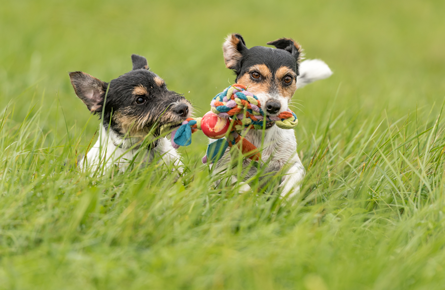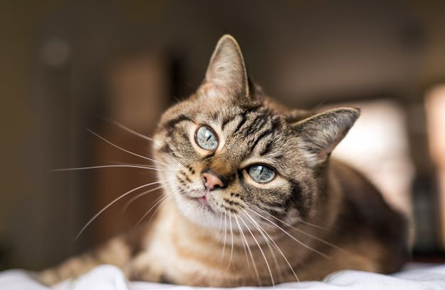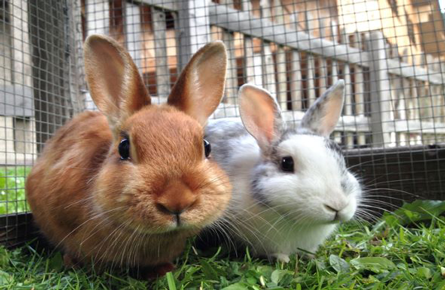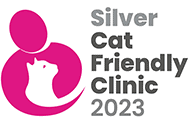Pet Dental Care Services
Pet dental care is vitally important for your pet. Unfortunately, dental disease is very common for dogs and cats. Taking preventative measures from an early age with guidance from your vet will help maintain good dental hygiene, ensuring you keep your pet pain-free.
Keeping Your Pets Teeth Healthy
We advise regular at-home pet dental care to ensure your pet has the best chance at avoiding dental disease. Our Veterinary staff can recommend a range of select dental health care products.
We can suggest the best products to suit your pet’s needs, such as pet toothpaste (never use human formulations), safe dental treats and supplements work together. We also have handy guidelines on how to properly clean your pet’s teeth, putting a place a regime from whilst your pet is young, so it becomes part of your routine and an easy job as they grow up. Putting this in place, with regular vet dental exams, scaling and polishing, reduces the risk of them needing dental work in the future.
Book a pet dental care appointment
Emergency Dental Extractions by Vet Dental Experts
In some cases, due to a variety of causes, you may face a pet dental emergency. This could be when your pet breaks their tooth on a hard object or suffers an external injury. In this case, it is key to get them to a Vet dental expert immediately to assess the level of damage and provide pain relief to your cat or dog.
A pet dental expert can in some cases immediately determine whether a dental extraction is needed by a physical exam alone, where there are obvious signs of damage such as fractures, abscesses, cavities, or lesions.
However, they may need a dental x-ray or a CT scan to assess concerns about hidden injuries to teeth. If required, teeth are extracted surgically under anaesthetic with IV fluids. We provide pain relief by giving a dental nerve block before the procedure, followed up with pain relief during recovery.
Please note X-rays are completed at our sister practice, Alder Vets in Guildford.
During the initial recovery stages, we will talk through how to best care for your pet to help them feel as comfortable as possible, including feeding soft foods and the avoidance of hard chew toys.
You will usually notice that your pet appears significantly happier after having emergency pet dental care, which reflects the underlying pain playing a big part in how they feel. If your dog or cat’s temperament, eating and drinking habits change drastically and they seem in pain, visit one of our practices as soon as you can for a full examination.
Book a pet dental care appointment
Pet Dental Care FAQs
What is dental disease?
Dental disease can vary from mild to severe. In the early stages of dental disease plaque and tartar begin to build on the surface of the tooth. As plaque and tartar continue to build the gum around the tooth can become inflames (gingivitis). Left untreated, the inflamed gum will begin to recede, exposing the root of the tooth. Ultimately the tooth may be lost. Dental disease can occur following trauma where a tooth is fractures
Is my pet in pain if they have dental disease?
Yes. Your pet’s teeth are made up in the same way as our teeth with the same nerves and sensations. They experience dental pain in the same way as we do. However, pets are very good at hiding this pain and it can often be difficult to identify they are in pain.
Who will check if my pet has dental disease?
Our nurses can assess your pet’s teeth for free during a dental clinic and are fully trained in advising you on techniques to help care for them. In addition, our vets will check your pet’s teeth at each of their examinations for vaccinations or other problems.
What happens during my pet’s dental care?
At the start of your pet’s treatment, we will chart your pet’s mouth. This is a process where we individually assess each tooth and the gums and record any abnormalities. Charting your pet’s teeth ensures no problems are missed and acts as a record if further investigation treatment is required. You will also receive a copy of this chart for your own records. The vet doing your pet’s dental care will then call you to discuss the findings in your pet’s mouth and to recommend what dental treatment is required. You will also be given costs of all treatments. As will all operations your pet will be carefully monitored throughout their anaesthetic.
What is scale and polish procedure?
As with people, a scale and polish involve an ultrasonic scaler held gently against the teeth. The scaler will gently vibrate against the teeth to remove tartar. A high-speed polisher is then used to ensure your pet’s teeth are left smooth and clean. (All patients who require other dental treatment will also have their teeth scaled and polished).
When are dental x-rays taken?
If we are concerned about a tooth showing early signs of decay, we may take an x-ray of the tooth as your own dentist would do. The x-ray allows us to examine the portion of the tooth under the gum (the root) to identify if it’s healthy or not. This information will be used to determine the best treatment for that tooth.
What do dental extractions involve?
In short, dental extractions mean removing teeth. This is only done when a tooth is diseased and, if left in the mouth, will cause further problems. At Crofts Vets Surgery we use surgical extractions to carefully remove teeth which are diseased. This means we use surgical techniques to safely remove the tooth, minimising trauma to the gums and other structures in the mouth. We will then suture the gum. For your pet this means minimal trauma in their mouth and quicker healing time.
What if my pet requires more advanced dental treatment?
On occasion your pet may require more advanced dental techniques such as root canal treatment. These advanced procedures can help to prevent teeth which are showing early signs of disease and can help prevent extractions. If this is required, we can discuss referral options for your pet.








